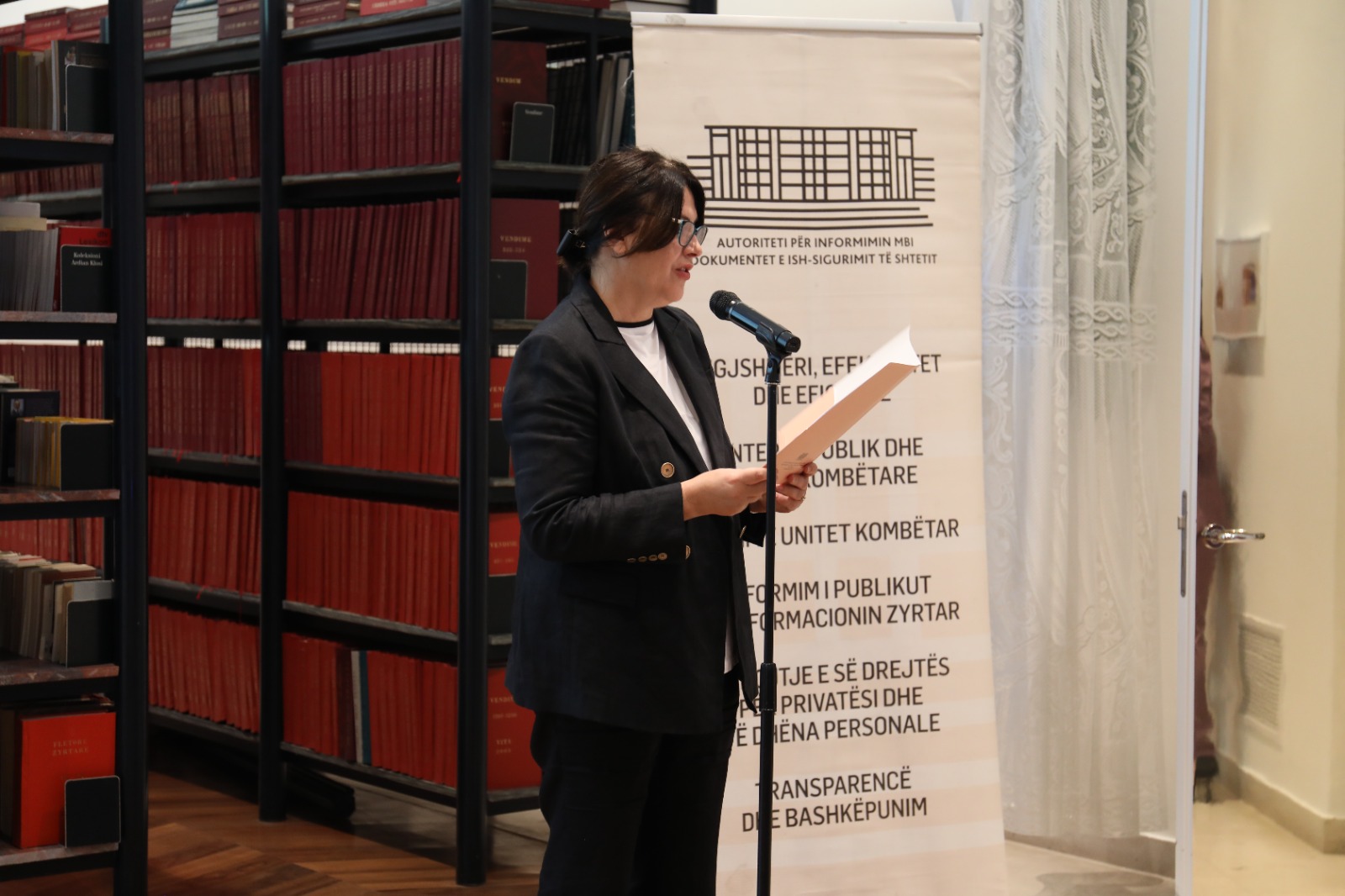
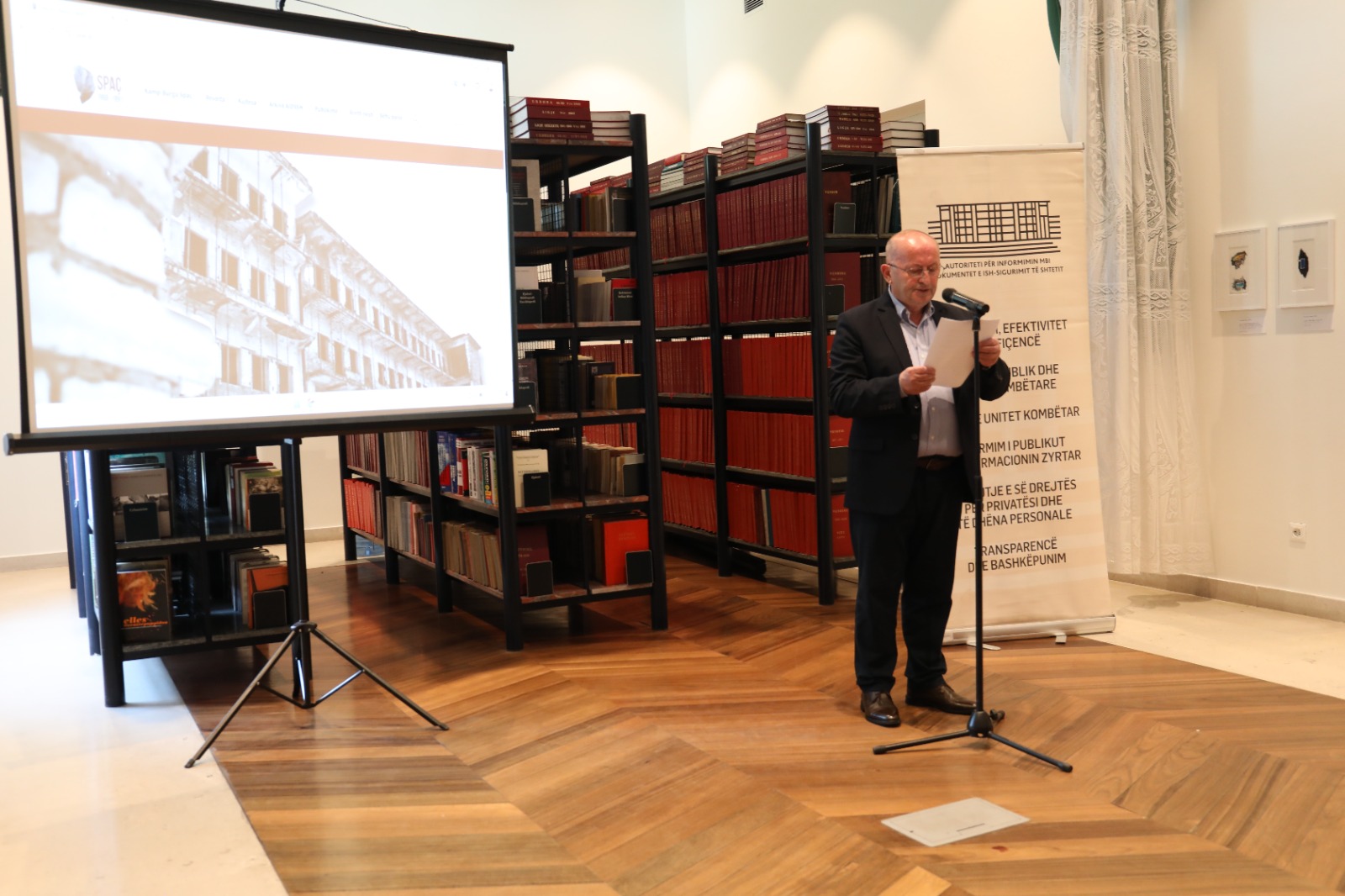
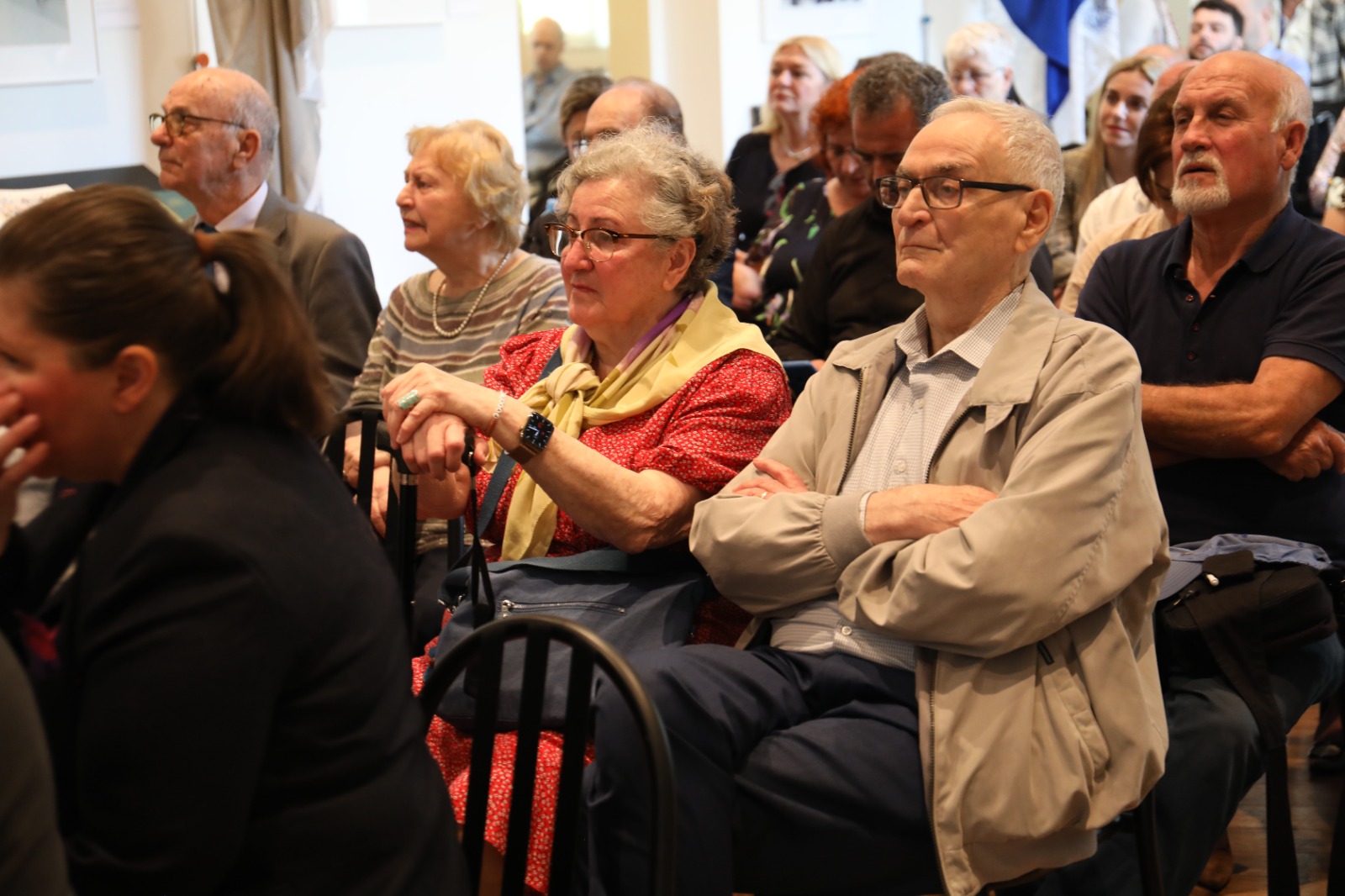

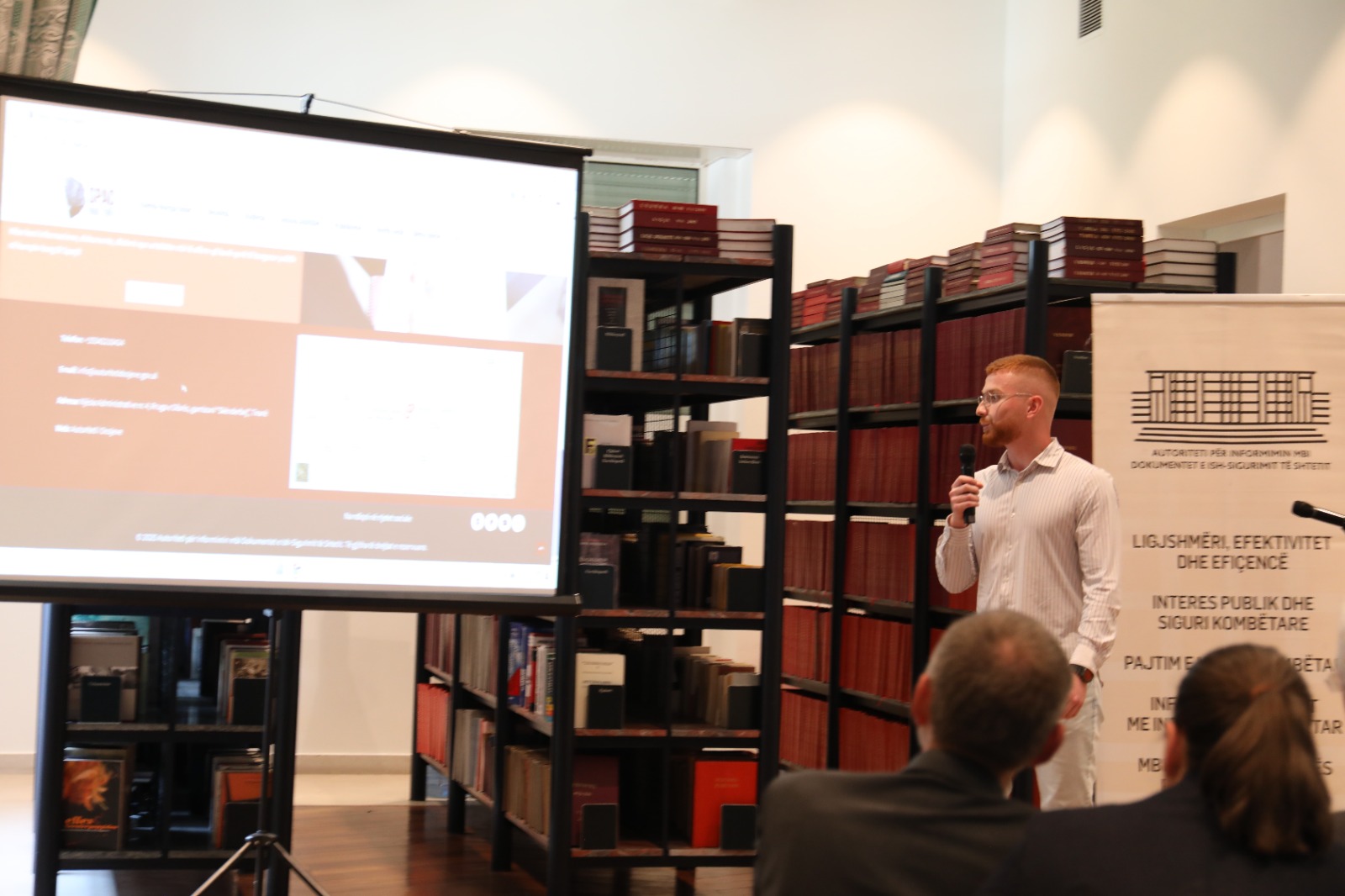
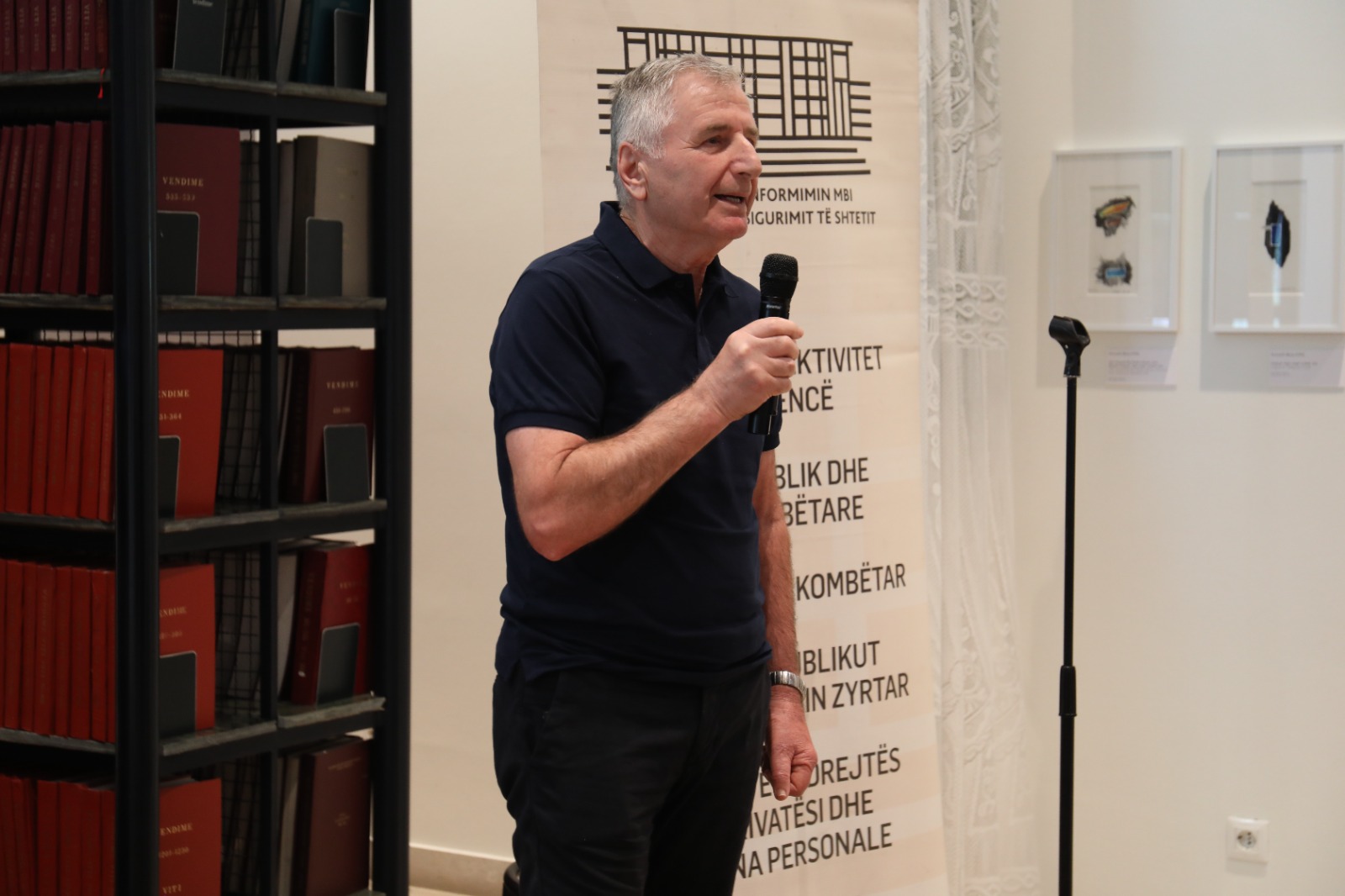
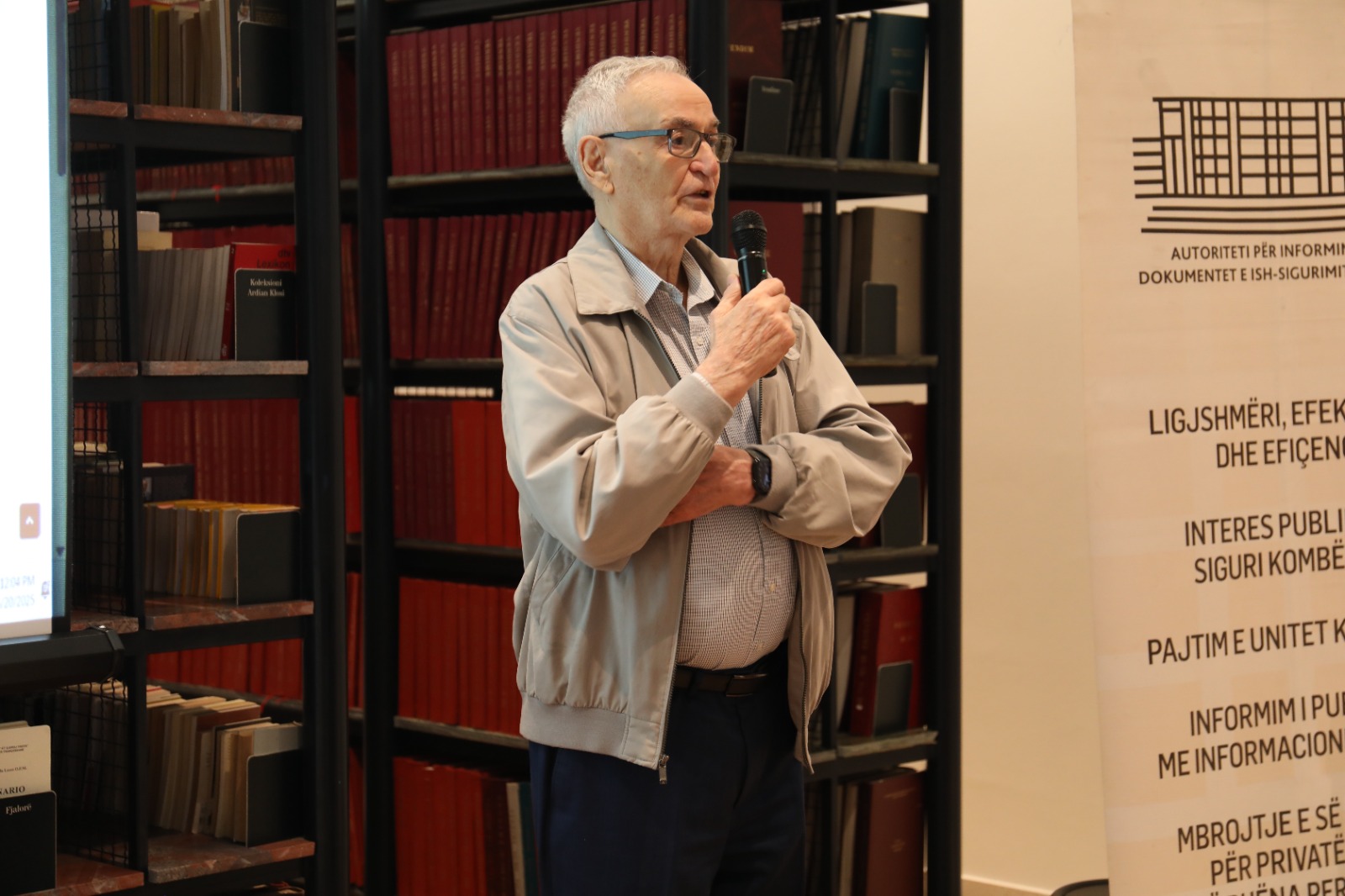
Tirana, May 20, 2025 – On the occasion of the 52nd anniversary of the Spaç Revolt, the Authority for Information on the Former State Security Documents organized a commemorative ceremony at the Prime Minister’s Library, presenting the digital platform for the first time. www.spac.al—a digital archive open for documenting and educating about the history of the Spaç prison camp and the crimes of communism in Albania.
In her speech, the Chairwoman of AIDSSH, Ms. Gentiana Sula, emphasized the importance of documenting the past in order to build a more just future:
“The Spaç Revolt and the stories of over 2,000 political prisoners stand as a testament to the strength of the human spirit to never give up. We cannot change what happened, but we can change its outcome through documentation, education, and restoring dignity to those who suffered unjustly.”
Ms. Sula also highlighted the institutional efforts to address the injustices and stigmas faced by political persecuted individuals:
ChatGPT said:
“The Authority has proposed legal amendments for the official recognition of their sufferings, including periods of internment, unpaid labor, pension rights for mine prisoners, and the musealization of Spaç. These are essential steps to uproot discrimination and build a more just and humane society.”
The German Ambassador to Albania, Mr. Karl Bergner, praised the role of memory in strengthening democracy and congratulated the Authority for creating this digital archive, which not only preserves the memory of the past but also imparts lessons to the younger generation.
“You paid the price of freedom. Memory is the foundation of a healthy society and is necessary to build the future with responsibility.”
Mr. Gjergj Marku, member of the Authority and head of the working group for documenting Spaç, emphasized:
“We seek for Spaç to be transformed into a place of national memory, a national museum, and an educational center for future generations. This place is not simply a former prison; it is a symbol of pain, but also of human resilience. Spaç is a wound, but also pride. It is darkness, but also light. It is testimony, but also a legacy.”
We remain committed to ensuring that silence and forgetfulness do not cover a history that belongs to every Albanian who believes in freedom. It is our duty to prevent the victims from being forgotten and the crimes from being erased from collective memory.”
The platform brings to the public lists of the convicted, oral testimonies, interviews, correspondence, and official documents, including materials on the May 1973 revolt, serving as a tool for civic reflection and intergenerational education.
Former political prisoner Lekë Mirakaj described the Spaç revolt as a pivotal moment of national dignity:
“The Spaç revolt is one of the peaks of national pride. The state must take care of and guarantee a dignified pension for political prisoners, no less than those who have served in the repressive organs.”
Nestor Topençarov, another survivor of the Spaç camp, shared his prison experience with the public:
“Every day was stressful. Locked between mountains, surrounded by barbed wire. When you entered the gallery, you didn’t know if you would come out. When you returned to the camp, the guards would provoke you to get you locked up in solitary confinement.”
Nuri Stepa, another participant in the revolt, said: “On this day of remembrance, we cannot help but recall the execution of four brave young men left without graves—Pal Zefi, Dervish Bejko, Skënder Daja, and Hajri Pashaj.”
The Authority for Information on the Former State Security Documents reiterates its commitment to preserving historical memory and ensuring that the sufferings of former persecuted individuals are not erased but serve as a source of education for future generations.
